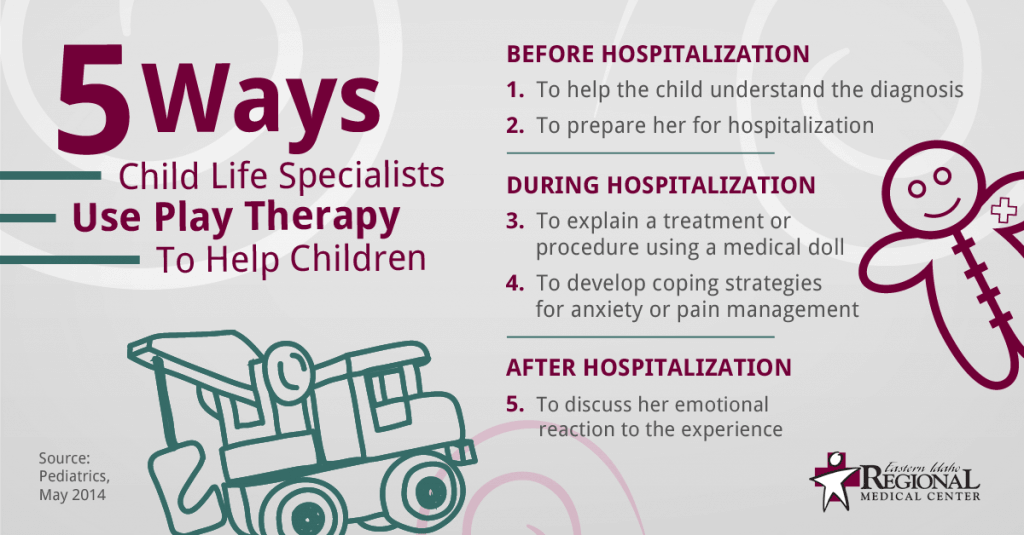When your child is hospitalized, your main concern as a parent is making sure she receives whatever treatment is necessary to get her physically healthy again.
But hospitalization can disrupt a child's mental health and development as well. That's where child life specialists come in.
A child life specialist's job is to support children and their families through difficult health challenges.
One of the ways that a child life specialist can best connect with children is through play therapy.
As its name implies, play therapy uses fun activities to teach children how to cope with difficult situations and express their emotions in a healthy way, the Association for Play Therapy explains.
Here are 5 ways a child life specialist uses play therapy to help sick kids cope.
1. Addressing Developmental Needs
A child life specialist receives specific training and certification in the developmental needs of children, the Child Life Council (CLC) explains.
According to the CLC, this understanding and experience allows them to help by:
- Preparing the family for admission to the hospital
- Building an emotionally supportive environment for the patient
- Helping prepare the patient for tests, surgeries, and other procedures
- Coordinating special events and activities for patients and their families
- Helping siblings understand and cope with the patient's hospitalization
Also see: 3 Things You Should Know About Child Life Specialists
Because child life specialists understand kids' developmental needs, they can tailor play therapy activities to those needs, a May 2014 Pediatrics article says.
For instance, older children usually enjoy activities that provide them with a sense of mastery and accomplishment, so video games tend to be a good option for them.
2. Learning Through Play
Any child will tell you that he likes to play because it's fun. But what he may be unable to express is that he is also learning in the process.
According to the Association for Play Therapy, play therapy helps children:
- Improve self-expression
- Increase independence
- Decrease stress
- Create appropriate emotional responses
- Boost motor skills
3. Coping With The Hospital Experience
Child life specialists use play therapy to help kids at all stages of diagnosis and treatment.

Source: Pediatrics, May 2014
For example, a child life specialist may use a doll to show a child where the doctors will operate on him, and what equipment will be used during and after the procedure.
Or a child life specialist may help a child who is recovering from treatment express her feelings by putting on a puppet show that features a character who has gone through a similar experience.
4. Maintaining A Sense Of Normalcy
Children who are hospitalized may be upset not only because they're not feeling well, but also because their normal routine has been disrupted.
In addition to encouraging kids to express how they are coping with their experiences, play therapy helps them just continue to be kids, the Pediatrics article says.
This can be comforting for kids, and it can also help them stay on par with their peers developmentally.
5. Improving Physical Health Through Stress Reduction
The Pediatrics article explains play therapy that reduces a child's stress and anxiety can also impact his physical health by decreasing:
- Sweaty palms
- Excessive movement
- Heart rate (tachycardia)
- High blood pressure (hypertension)
The article also points out that infants and toddlers”who are still developing their sense of mobility and motor skills”can benefit from play therapy that encourages exploration and movement.
Eastern Idaho Regional Medical Center's Child Life Specialists can help your child during hospitalization.
$webqFacilityNumber
Need a Physician?